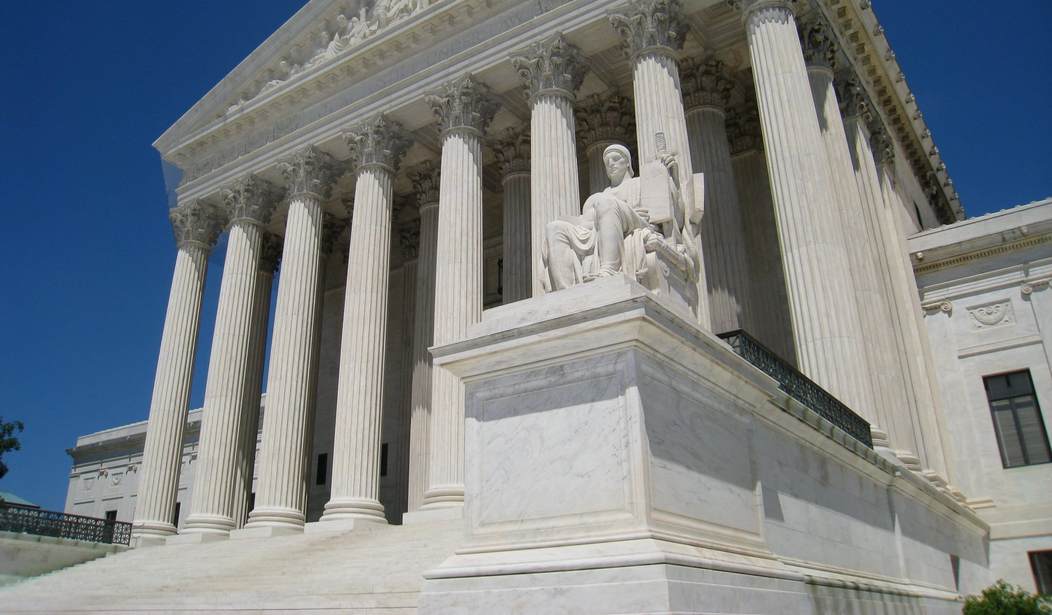On Monday, the U.S. Supreme Court announced it would consider three cases involving alleged discrimination against LGBT people who sued on the basis of Title VII of the Civil Rights Act of 1964, which prohibits discrimination on the basis of sex. Two gay men and one man who identifies as a woman claimed that they were fired for their sexual orientation and gender identity, respectively.
While in most cases people should not be fired for their sexual orientation or gender identity, a decision in their favor would redefine “sex” in civil rights law to include sexual orientation and gender identity, and it would likely do damage to key First Amendment liberties regarding free speech and religious freedom.
“The Court should decide that Congress did not intend ‘sex’ to include ‘sexual orientation’ or ‘gender identity’ not least because doing so would raise a host of First Amendment and other constitutional issues,” Luke Goodrich, vice president and senior counsel at the Becket Fund for Religious Liberty, told PJ Media.
“Chief among these would be the ability of religious organizations like hospitals, homeless shelters, and schools to continue providing services consistent with their religious beliefs,” Goodrich added. “The Court should interpret Title VII’s plain language to decrease, not increase, the amount of conflict with the Constitution and among different social groups.”
In Altitude Express Inc. v. Zarda, a skydiving instructor in New York said he was fired because he was gay. The U.S. Court of Appeals for the Third Circuit ruled that sexual orientation discrimination is motivated, at least in part, by sex and is thus a subset of sex discrimination. In Bostock v. Clayton County, Georgia, however, the Eleventh Circuit cited a 1979 decision that “discharge for homosexuality is not prohibited by Title VII.” For this reason, the child welfare services coordinator who claimed he was fired for being gay was not protected under Title VII.
The Supreme Court consolidated these two cases into one.
In R.G. & G.R. Harris Funeral Homes v. Equal Employment Opportunity Commission, a Michigan funeral home fired a biological man who announced he was identifying as a woman, planned to go by the name Aimee Stephens, and would be dressing as a woman. Stephens won in the Sixth Circuit Court of Appeals, which ruled that discrimination against transgender people is prohibited under Title VII.
“It is analytically impossible to fire an employee based on that employee’s status as a transgender person without being motivated, at least in part, by the employee’s sex,” the Sixth Circuit ruled. “Discrimination ‘because of sex’ inherently includes discrimination against employees because of a change in their sex.”
The Supreme Court took up the case, focusing on the question of whether Title VII “prohibits discrimination against transgender people based on (1) their status as transgender or (2) sex stereotyping under Price Waterhouse v. Hopkins, 490 U. S. 228 (1989).”
Alliance Defending Freedom (ADF), a Christian law firm defending the funeral home, noted that the Sixth Circuit’s ruling allows the federal government to force the funeral home “to allow a male employee who identifies as female to dress in women’s clothing when meeting with the deceased’s grieving family members and friends, in violation of the family business’s sex-specific dress code.”
“In so doing, the court redefined ‘sex’ in Title VII to conflict with the word’s well-understood meaning since the law’s enactment in 1964. Title VII is a federal law intended to ensure equal opportunities in employment, regardless of a person’s race, religion, national origin, or sex.”
“Neither government agencies nor the courts have authority to rewrite federal law by replacing ‘sex’ with ‘gender identity’—a change with widespread consequences for everyone,” John Bursch, ADF’s vice president of appellate advocacy and senior counsel, said in a statement on the case. “Businesses have the right to rely on what the law is—not what government agencies want it to be—when they create and enforce employment policies.”
“The funeral home wants to serve families mourning the loss of a loved one, but the EEOC has elevated its political goals above the interests of the grieving people that the funeral home serves,” Bursch argued.
Before the Sixth Circuit’s ruling, the U.S. District Court for the Eastern District of Michigan ruled in favor of the funeral home, upholding the company’s ability to enforce a dress code.
Both conservatives and radical feminists have criticized the push to redefine “sex” to mean “gender identity.” Lesbian feminist Julia Beck has attacked H.R. 5, the “Equality Act,” as a “human rights violation” because it would open all sex-segregated women’s spaces to biological men who identify as women. In many cases, men who identify as women do not get hormones or surgery.
ADF’s Supreme Court petition argues that the Sixth Circuit’s decision harms women by undermining the original purpose of the Civil Rights Act of 1964.
“The Sixth Circuit’s decision undermines the primary purpose for banning discrimination based on sex—to ensure ‘equal opportunities’ for women , and ‘eliminate workplace inequalities that [have] held women back from advancing,'” the ADF Supreme Court petition reads. “Employment reserved for women—like playing in the WNBA or working at a shelter for battered women…—now must be opened to males who identify as women. The same is true of sports and educational opportunities under Title IX. The Sixth Circuit’s ruling impedes women’s advancement.”
Yet “substituting ‘gender identity’ for ‘sex’ in nondiscrimination laws also threatens freedom of conscience,” the petition continued. “Statutes interpreted that way have the effect, for instance, of forcing doctors to participate in—or employers to pay for—surgical efforts to alter sex in violation of their deeply held beliefs…. In sum, the Sixth Circuit ushered in a profound change in federal law accompanied by widespread legal and social ramifications.”
ADF Senior Counsel Jim Campbell emphasized that changes like this should go through Congress rather than being foisted upon the American people by the courts. “These are important policy questions that the people have the right to decide through their elected officials. Unelected officials—whether bureaucrats or judges—don’t have the power to make these choices for us,” he said.
Americans oppose discrimination against people on the basis of sexual orientation and gender identity, but “sex” in 1964 did not involve sexual orientation or gender identity. Even today, biological sex is not the same thing as sexual orientation or gender identity. The Third Circuit and the Sixth Circuit have changed the meaning of “sex” in the law, and the Supreme Court should reverse their rulings.
Congress can pass a law prohibiting discrimination on the basis of sexual orientation and gender identity, but it does actual harm to change the meaning of sex in Title VII of the Civil Rights Act. It is not the Supreme Court’s job to make new law in this fashion.
Follow Tyler O’Neil, the author of this article, on Twitter at @Tyler2ONeil.









Join the conversation as a VIP Member